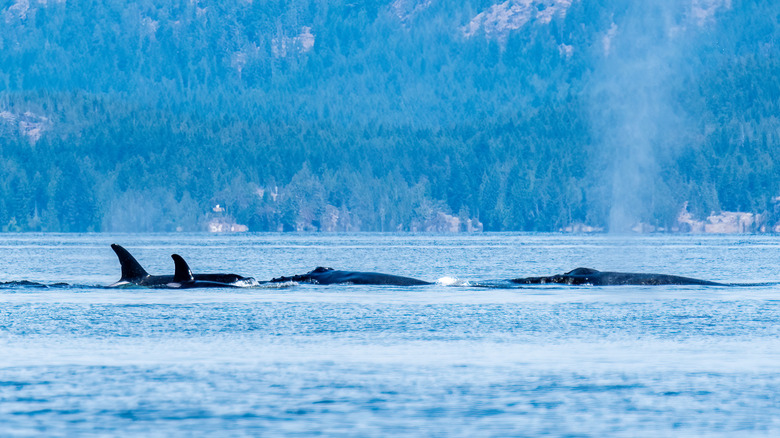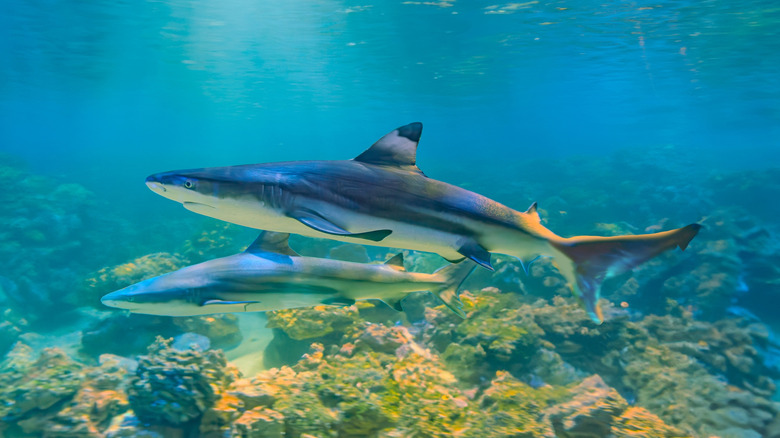1 Of The Ocean's Most Terrifying Predators Is A Menace Even To Sharks
The great white shark is renowned as one of the most terrifying creatures in the ocean, due to its frightening portrayal in films like "Jaws" and "The Reef." However, there is a proficient and deadly hunter of the deep that is more fearsome than the great white: the orca. Orcas, known as "Killer Whales," dominate the oceans with their ability to hunt efficiently in packs. Yet, recent incidents suggest orcas are an even greater menace than previously thought.
Sharks have been washing ashore off the coast of Gansbaai, South Africa, since 2017, with large chunks of their abdomen missing. These attacks were attributed to two killer whales after they killed eight sharks in a year, eating only their livers in all instances but one. In 2023, sharks in Australia were found washed up on shore in a similar state. How did scientists figure this out? Biologist Isabella Reeves, part of the Shark Ecology Group at Flinders University, discovered Orca DNA in the bite wounds of sharks, stating "This suggests that such predation events may be more widespread and prevalent across the globe than previously believed."
The incidents in Australia with Reeves' discovery proved prophetic. A year later, a 2024 study published in Frontiers in Marine Science showed that, after a six-year monitoring period of killer whale populations, they exhibited similar predation patterns on whale sharks along the coasts of California and Mexico. Three witnessed attacks were carried out by a single male orca, with a fourth attack attributed to a female. Killer whales have a diverse diet and will even eat seabirds and other whales. Yet, the targeting of sharks for their livers has led the scientific community to speculate about the reasons behind this behavior.
The reason why some orcas are killing sharks only for their livers
Why target livers? Speaking with Scientific American on the trend, Isabella Reeves of Flinders University in Australia shared about the orca, "As a long-lived animal with a single set of teeth, minimizing tooth wear may be the key to a long and healthy life, supporting the selection of soft tissues where feasible." The organ, rich in fats and nutrients, may also be selected to compensate for elements missing in the orca's diet; availability and/or type of prey can also lead to selective diets.
Marine life off the coast of California has faced significant challenges, including the recent heartbreaking stories of sea lions and dolphins attacking humans caused by harmful algal bloom toxins. Orcas have been similarly affected by climate change, migrating further north than ever before to chase herring, their primary food source. In April 2023, researchers at McGill University published their findings in the Journal of Animal Ecology, which presented the most comprehensive study of orca diets to date. They found that diet varied between different sample groups, indicating that there is still much to learn, including how climate change may affect their behavior.
Currently, great white sharks are listed as vulnerable on the International Union for Conservation of Nature's Red List with decreasing numbers; the recent tagging of the largest great white shark in the Atlantic — and the only sexually mature one — is indicative of a lack of mature populations. Moreover, the appearance of orcas can displace shark populations, further upsetting the marine ecosystem. Interested in more about recent environmental changes? Read our article on the dangerous predator problem in Houston, Texas, that keeps growing.

